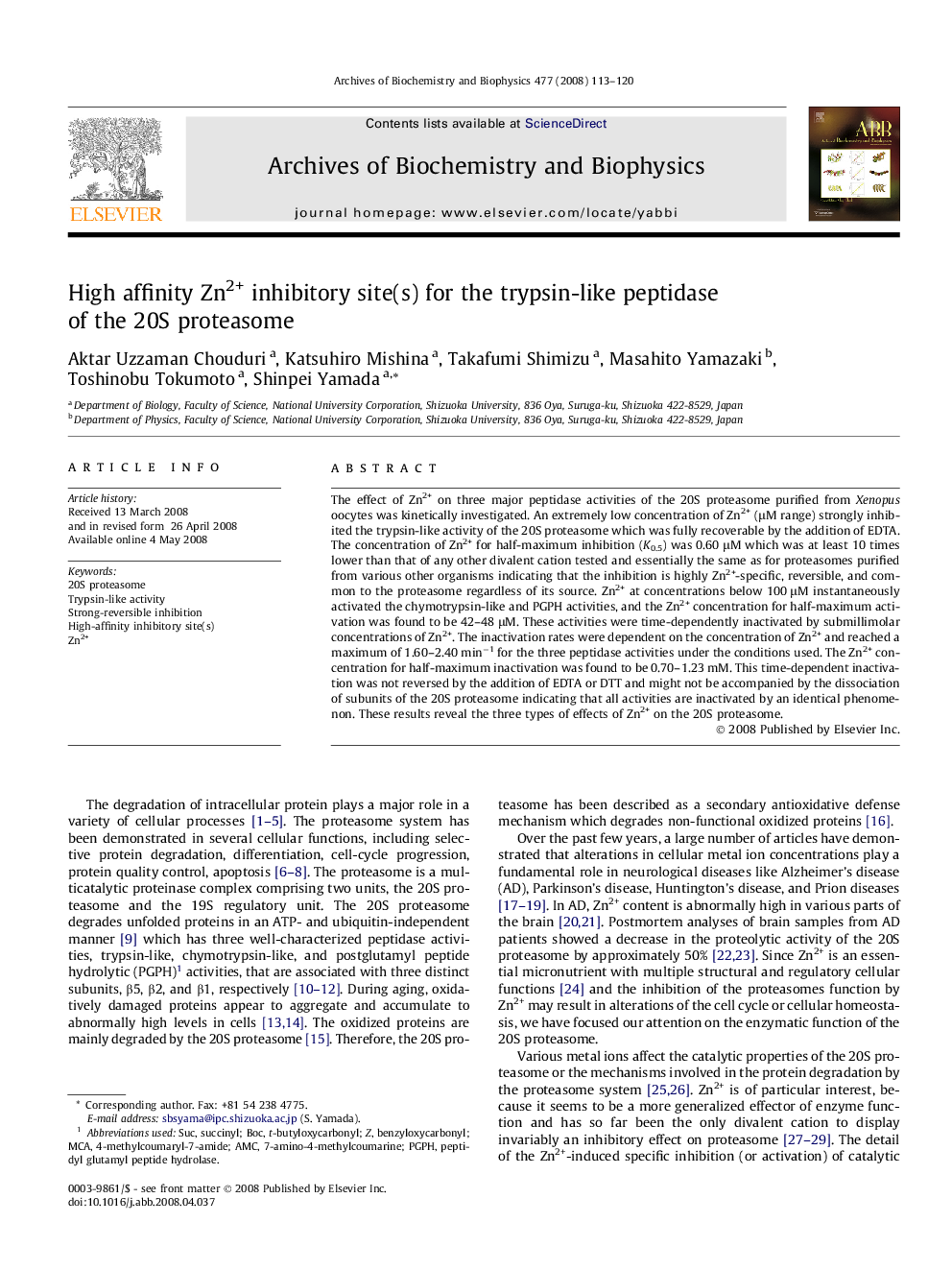| Article ID | Journal | Published Year | Pages | File Type |
|---|---|---|---|---|
| 1926622 | Archives of Biochemistry and Biophysics | 2008 | 8 Pages |
Abstract
The effect of Zn2+ on three major peptidase activities of the 20S proteasome purified from Xenopus oocytes was kinetically investigated. An extremely low concentration of Zn2+ (μM range) strongly inhibited the trypsin-like activity of the 20S proteasome which was fully recoverable by the addition of EDTA. The concentration of Zn2+ for half-maximum inhibition (K0.5) was 0.60 μM which was at least 10 times lower than that of any other divalent cation tested and essentially the same as for proteasomes purified from various other organisms indicating that the inhibition is highly Zn2+-specific, reversible, and common to the proteasome regardless of its source. Zn2+ at concentrations below 100 μM instantaneously activated the chymotrypsin-like and PGPH activities, and the Zn2+ concentration for half-maximum activation was found to be 42-48 μM. These activities were time-dependently inactivated by submillimolar concentrations of Zn2+. The inactivation rates were dependent on the concentration of Zn2+ and reached a maximum of 1.60-2.40 minâ1 for the three peptidase activities under the conditions used. The Zn2+ concentration for half-maximum inactivation was found to be 0.70-1.23 mM. This time-dependent inactivation was not reversed by the addition of EDTA or DTT and might not be accompanied by the dissociation of subunits of the 20S proteasome indicating that all activities are inactivated by an identical phenomenon. These results reveal the three types of effects of Zn2+ on the 20S proteasome.
Related Topics
Life Sciences
Biochemistry, Genetics and Molecular Biology
Biochemistry
Authors
Aktar Uzzaman Chouduri, Katsuhiro Mishina, Takafumi Shimizu, Masahito Yamazaki, Toshinobu Tokumoto, Shinpei Yamada,
